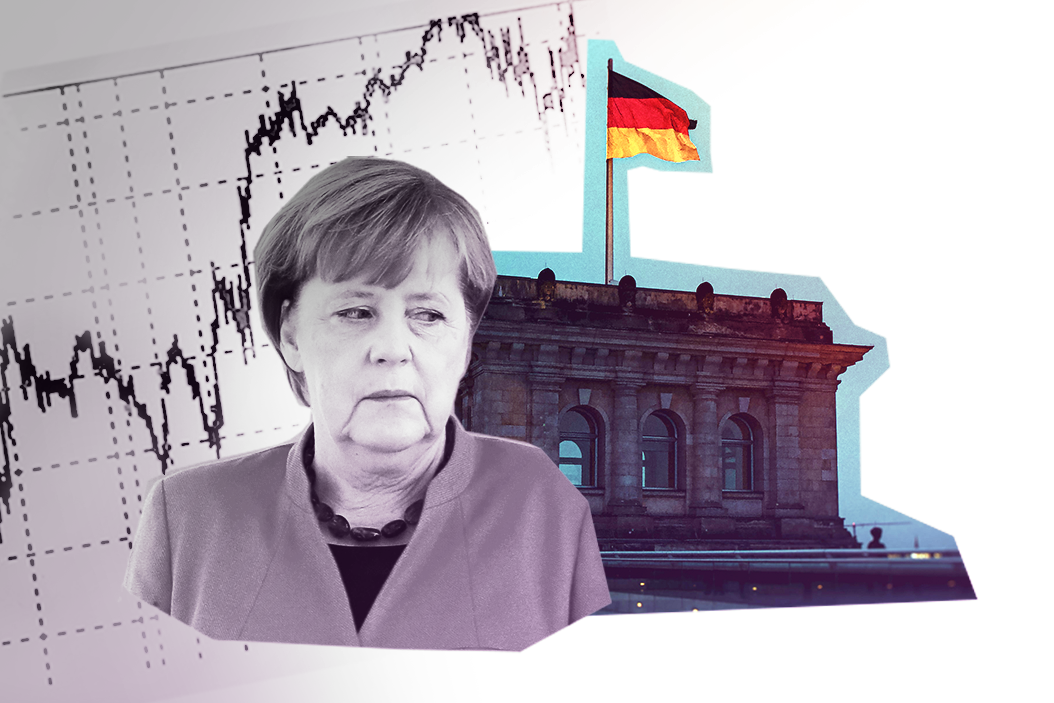It wasn't long ago that the US and UK were the big losers of the developed world for their incompetent and politicized handling of the pandemic. Cases and deaths were surging even as their leaders diminished the threat of the disease.
Germany, meanwhile, was seen as a model of responsible pandemic management. Chancellor Angela Merkel's compassionate, pragmatic leadership, combined with respect for scientific expertise and general adherence to public health recommendations, had kept virus numbers low.
Six months later, the tables are turned — while the US and UK are poised to turn the corner with strong vaccine rollouts, the wheels are coming off in Germany.
A third wave is building fast. The 7-day average of new cases in Germany has nearly doubled since March 6th, to almost 16,000. The arrival of the more contagious B.1.1.7 "British" variant is thought to be a major reason why. Chancellor Angela Merkel summed things up in stark terms last week: "We have a new pandemic."
An abysmal vaccine rollout has made things worse. Only 13 out of every 100 Germans have been vaccinated so far, barely a third of the clip in the US and UK. In part, critics say, that's because Merkel opted for a convoluted EU-wide vaccine purchase strategy rather than using German economic muscle to negotiate the best deal for her country. That left Europe's most populous country with a supply shortage to begin with.
But a bad rollout plan, which relied on specific distribution sites rather than family doctors, made it hard for people to find shots. And confidence-killing whiplashes on the safety of the AstraZeneca vaccine, Germany's main jab, have hamstrung the uptake as well.
Lockdowns, meanwhile, are becoming untenable. After months of winter restrictions, people and businesses are getting antsy as spring approaches. Last week, Merkel and the heads of Germany's 16 states agreed to extend current measures and to apply extra curbs during next week's Easter Holiday. But after a weekend of protests and backlash from churches and businesses, Merkel on Wednesday abruptly dropped the Easter plan, saying it was unveiled with too little notice. She asked forgiveness for the "mistake."
This is hurting Merkel and her party politically. While she is still one of the more popular elected leaders in the world, her support has plummeted almost 10 points since the start of the year to 51 percent, while her disapproval rating is as high as it's been since last March. Her one-time Wunderkind health minister Jens Spahn, who was so popular last year that he reportedly floated making a run for the Chancellorship, now has a disapproval rating of 60 percent.
Meanwhile, support for the CDU's governing alliance with its Bavarian sister party, the CSU, is down to 28 percent today after polling in the mid-30s for most of the past year. A recent drubbing in key local elections -- coupled with a growing scandal over two CDU/CSU lawmakers taking payments to arrange government contracts for face masks — has added to the sense that Merkel and her party are losing control of the positive narrative in Germany.
A rocky spring ahead of a decisive autumn. All of this heightens growing doubts about who will be in charge in Germany after general elections in September. Chancellor Merkel is stepping down after 16 years in power, but is banking on her continued popularity to nudge her preferred successor, CDU chief Armin Laschet, to the top of the polls.
If enough voters decide they've seen enough of the CDU/CSU government, which has dominated modern Germany's political history, Germany could be in for a potentially unwieldy coalition that includes the Greens, center-left Social Democrats, and market liberal Free Democrats, all of whom are gaining support at the moment.
Can Merkel still right the ship? Angela Merkel has risen to the challenge of crises before, but with the clock ticking until her exit, can she do so again? For better or for worse, we've seen that a lot can change in six months of pandemic time.More For You
With close ties to both the US and China, can Singapore survive in an increasingly fragmented and chaotic world? Singapore’s President Tharman Shanmugaratnam joins Ian Bremmer on the GZERO World Podcast.
Most Popular
Think you know what's going on around the world? Here's your chance to prove it.
This week, Prime Minister Keir Starmer became the first UK leader to visit China in eight years. His goal was clear: build closer trade ties with Beijing.
